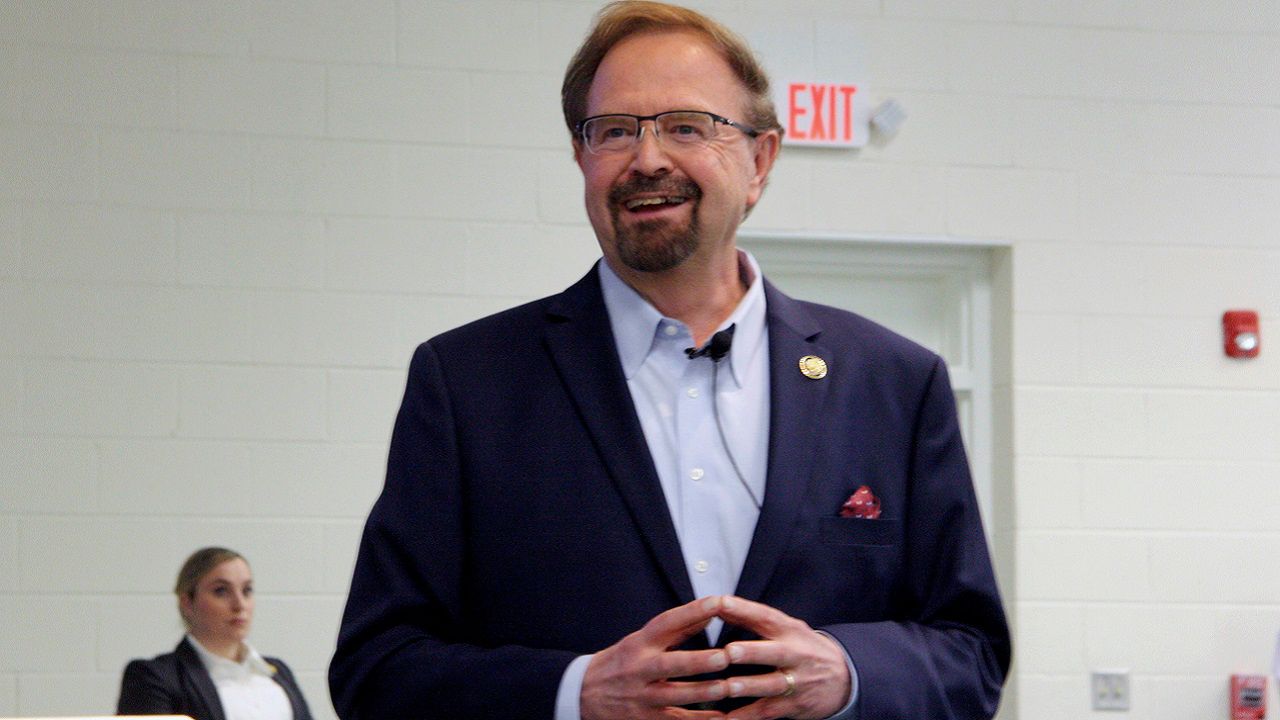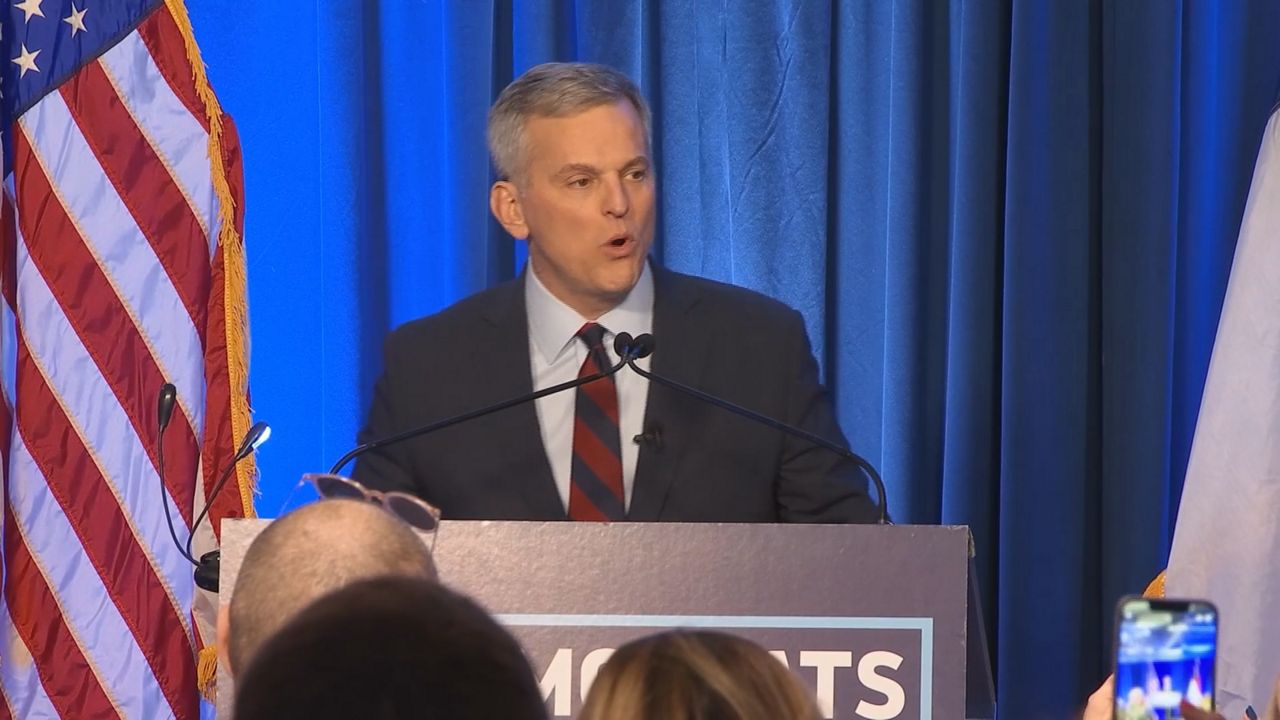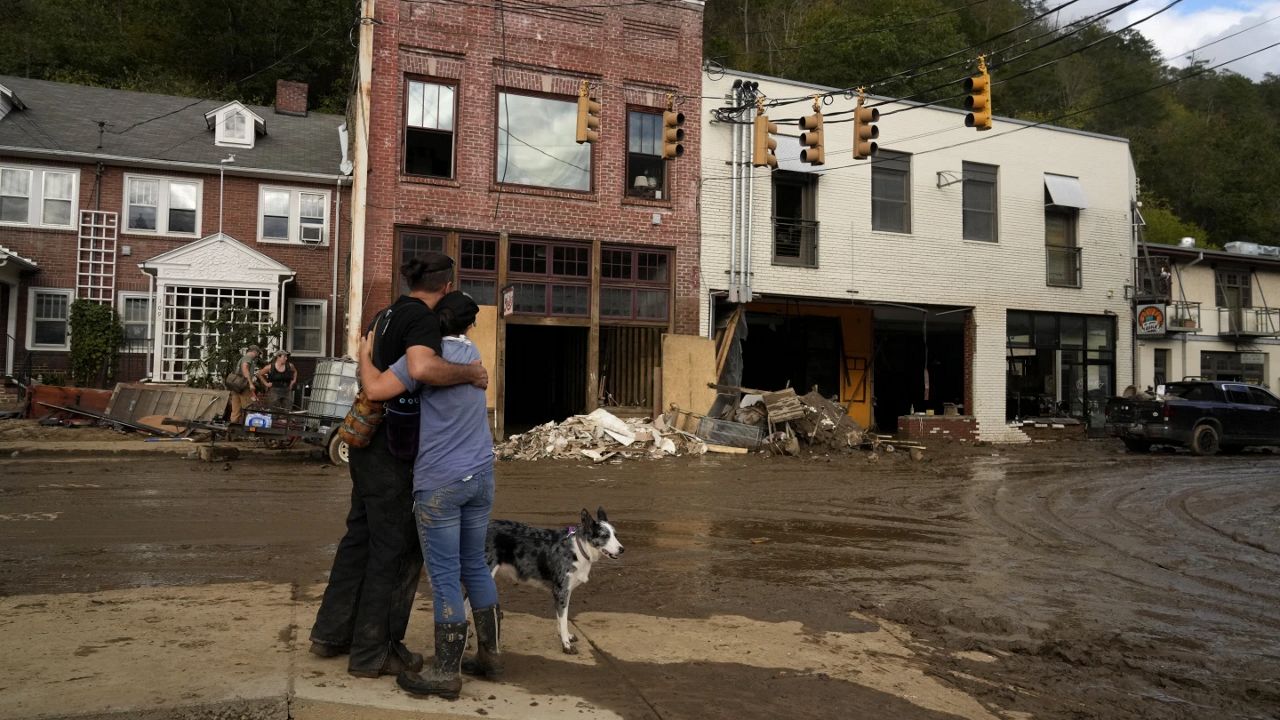President Donald Trump has had a lot to say about the Federal Emergency Management Agency since taking office. He's made cuts to the agency and even floated the idea of shutting it down altogether.
Many people in western North Carolina, still trying to rebuild from Helene, wonder where that could leave them.
Officials estimate the all-in cost of Helene’s impacts at $60 billion, some of which will come from federal, state and private insurance funding. The rest will be a loss for residents.
Spectrum News 1 reporter Reuben Jones recently spoke to Republican Rep. Chuck Edwards of western North Carolina. He released a 62-page report on his ideas to fix FEMA as well as accelerate Helene recovery across the area.
The report mentions pain points for survivors of recent natural disasters, including a difficult and wide-ranging process to get help and funding. Among the ideas for improvement in the report:
- Increase federal government cost share for Helene damage up to 100%
- Speed up disaster funding for North Carolina farmers
- Modernize FEMA information technology systems
- Simplify the disaster response process
He also met with White House officials to review the report.

“It was a most productive meeting. I appreciate the fact that President Trump came to western North Carolina. He made the promise that we would not be forgotten,” Edwards said.
Trump appointed Edwards and a group of others to a task force to speed up the recovery efforts across western North Carolina. The report directly results from his weeks of work, he said.
“The feedback that I’ve gotten from constituents and community leaders has been productive,” Edwards said. “They [White House officials] clearly understand the challenges that we have here in western North Carolina. They made a commitment to continue to work with me.”
Among the actions the White House officials told Edwards they’d make was speeding up the payments to local governments and his constituents. They also promised to continue working with western North Carolinians.
As for FEMA itself, there’s still a lot of work to be done, Edwards said.
“I believe that disasters can be much more efficiently handled in the hands of state and local officials that better understand the needs and topography of the area that has experienced the disaster,” he said.“I believe that disasters can be much more efficiently handled in the hands of state and local officials that better understand the needs and topography of the area that has experienced the disaster,” he said. “I don’t believe we need FEMA at the size and structure that it is now. There is clearly a bureaucracy that needs to be rebuilt.”
Edwards says he doesn't see why FEMA lands under the umbrella of the Department of Homeland Security. His research indicated the organization is monitored by five different oversight committees, which he says is cause for concern.
His personal solution to fix FEMA — block grants.
Block grants provide state and local governments funding to assist them in addressing broad purposes, such as community development, social services, public health and law enforcement, and generally provide them more control over use of the money than categorical grants, according to the U.S. Congress website.
“Come up with a formula to send natural disaster funds to states in the form of a block grant and allow states to administer their own recovery,” he said. “But there would be a core group of folks inside of FEMA, or whatever acronym that we wanted to use, that would be there as consultants for those situations where we have states not familiar with those types of disasters.”
The main point of Edwards’ report, though, is that western North Carolinians should be able to rebuild sooner rather than later and that he believes FEMA is in need of reform.







